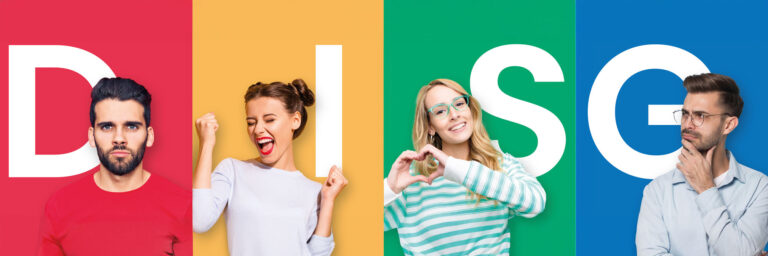With the 4 paths to greater learning competence
Learning competence will determine how successful we are in the future. Effective learning is the key to success in the information age. That’s why at persolog, we’ve been focusing on the question of how people can learn successfully throughout their lives for over a decade.
Learning is part of our personality. Some people may enjoy listening to loud music while reading a book. Others wear noise-canceling headphones to block out even the smallest distracting noises while studying. Some people need a group to discuss content with; that’s how they retain knowledge. Others prefer to listen and then reflect on their own. Since the way we learn is tied to our personality, there is no one right way to learn. It’s more about our own experiences, strengths, and fears.
How can learning be made easier?
Learning throughout life is one of the major political and societal challenges of our time. The dogma of lifelong learning is as integral to us as eating and drinking. Therefore, it is important to participate in knowledge and maintain the enjoyment of learning. Many people associate learning only with school, and often not in a positive way. “I can’t do math” or “I’m not linguistically talented” are phrases that often accompany us into adulthood. These are experiences of fear that are counterproductive for lifelong learning. Because learning is an essential skill for long-term success. However, most people have not questioned what the success factors of their learning were.
In the coming years, many people will be challenged to requalify because their jobs will change fundamentally due to automation and digitization. Those who do not take care of their own learning competence early on will find it difficult to start a learning process ad hoc that ensures their survival in the workplace.
People learn differently. There is no one way for us to learn successfully. Learning is related to our personality, preferences, and also the situation we are in. So, the starting points are our own learning preferences and our learning behavior because competence is measured by behavior. There are 4 paths that help us develop and effectively advance our learning competence.
Path 1: Creating learning prerequisites – What do I need for self-directed learning?
This path focuses on the three components of self-directed learning: internal personal regulation, behavior-related self-regulation, and environment-related self-regulation. According to educational researcher Barry J. Zimmerman, these are the prerequisites for lifelong learning to succeed without external pressure. So, it’s about creating the foundation for being able to shape learning with oneself. It’s about our attitude, our stance, or conviction about learning.
Path 2: Recognizing learning behavior – How do I learn best?
This path is about gaining clarity about our own learning behavior. There are different preferences in learning, different learning interests, and optimal learning conditions are not the same for everyone. It’s about reflecting on our own learning behavior, getting to know different learning styles, and proactively shaping our own learning environment with the insights gained.
Path 3: Designing learning – How do I get into self-directed learning?
Path 3 addresses the question of how we can design learning in such a way that we succeed in learning in a self-organized and self-directed manner. Here, it is helpful to consider three phases that support us in learning in a self-directed manner: preparation phase, performance phase, and self-reflection phase. Because our self-directed learning develops in these phases.
Path 4: Using learning strategies – How do I learn throughout my life?
Finally, in the fourth path, it’s about us discovering suitable learning strategies and making a concrete plan that can enable us to expand and enhance our learning competence throughout our lives. There are many different strategies, such as organizational strategies, self-control and self-regulation strategies, knowledge utilization strategies, motivation and emotion strategies, cooperation strategies, and resource management strategies.
Developing learning competence does not happen overnight. It’s a longer process in many small steps. Equipped with effective strategies and tools, we can explore new possibilities that suit us. Because building learning competence means finding our personal path.
Debora Karsch




